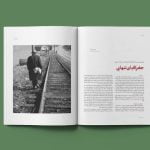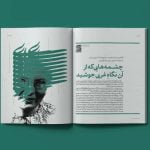The century in which Rumi lived was one of the most tumultuous in the history of the Middle East and Central Asia. When he was about 10 years old the region was invaded by the Mongols, who, under the leadership of Genghis Khan, left death and destruction in their wake. Arriving through Central Asia and north-eastern Persia, the Mongols soon took over almost the entire region, conquering Baghdad in 1258. The collapse at the hands of an infidel army of the once glorious Abbasid caliphate in Baghdad, the symbolic capital of the entire Muslim world, was felt throughout the region as a tremendous shock. Soon afterwards, there was a sign that the map of the region would continue to change, when the Mongols suffered a major defeat in Syria, at Ayn Jalut in 1260.
Rumi’s life was directly affected by the military and political developments of the time, beginning with his family’s emigration from north-eastern Persia just two years before the Mongols arrived to conquer that region. As the Mongols advanced westwards, Anatolia became an increasingly attractive destination for the inhabitants of central parts of the Middle East who wished to flee. A number of important Sufis and influential scholars chose this option, including Hajji Bektash (d. c.1272), the eponym of the Bektashi order, which became one of the most influential Sufi orders in Anatolia in subsequent centuries, and Najmoddin Razi (d. 1256), whose teacher, Najmoddin Kobra (d. 1221), the eponym of the Kobravi order, had been killed during the Mongol invasion of Transoxiana.
Although the family eventually relocated to Konya (ancient Iconium) in central Anatolia, Rumi witnessed the spread of Mongol authority across that region too when he was still a young man.
References
Lewis, Franklin D. Rumi: Past and Present, East and West: The life, Teaching and poetry of Jalal Al-Din Rumi. Oxford: One World Publications (UK), 2000.










